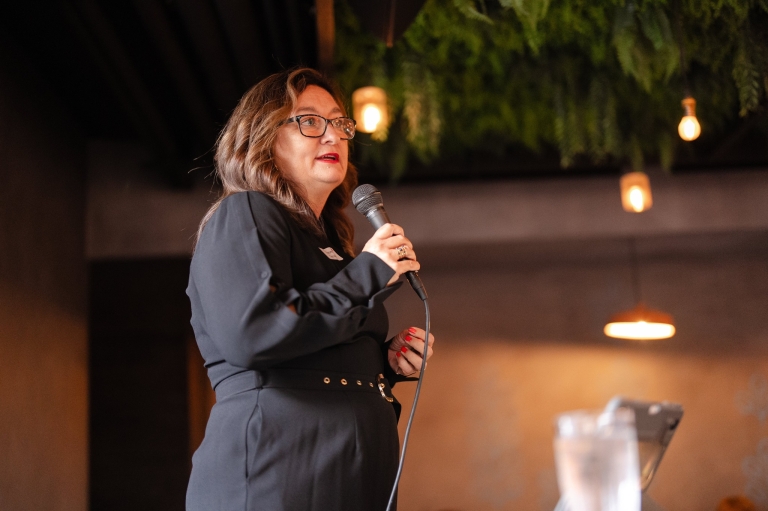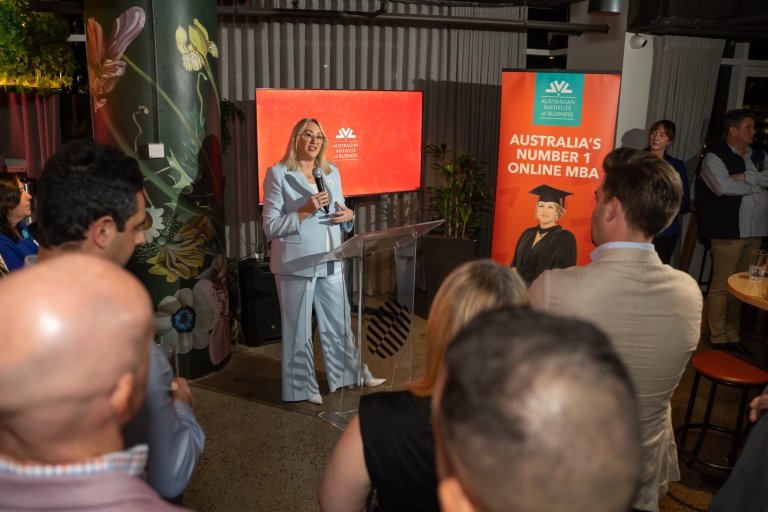AIB regularly hosts a variety of events that provide valuable opportunities for networking as well as professional and personal development. AIB events bring together leading business professionals and industry experts, plus AIB academics, students and alumni, to share their expertise. From our interactive webinars and workshops to networking events and graduations, our events are designed to inspire and educate aspiring business leaders of all levels.
Explore some of the highlights from past events featuring a range of incredible guest lecturers including award-winning marketer and television presenter Todd Sampson, cricketing legend Glenn McGrath, and serial entrepreneur and Kogan founder and CEO Ruslan Kogan.









